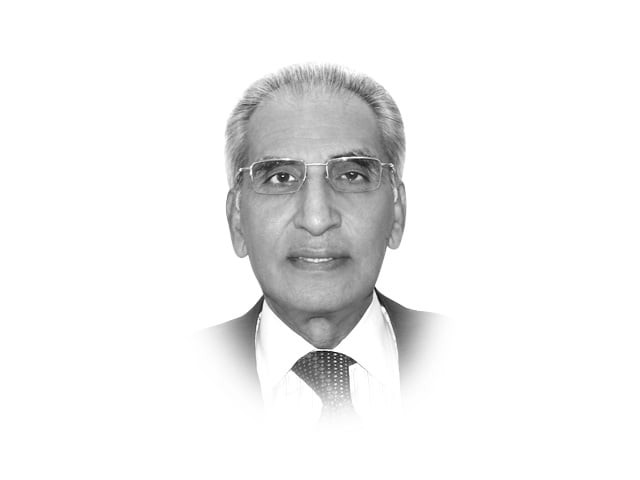Consistent inconsistency
Wests calls for humanitarian intervention in Libya are in stark contrasts to rights violations in other countries.

Consistent inconsistency
Undoubtedly, the Qaddafi regime is incredibly brutal, but the US-led military intervention in Libya has given rise to grave misgivings in the Muslim world, where western motives are under renewed scrutiny. The intense effort to ‘persuade’ the UN Security Council to approve a loosely worded ‘no-fly zone resolution’, with the help of a dubious Arab League resolution to immediately launch the operations, belied the West’s ‘humanitarian’ claims. Contrast this with America’s brazen veto of resolutions merely condemning Israel’s atrocities against Palestinians in occupied territories, as well as its silence over recent events in Yemen and Bahrain. How very consistently inconsistent!
Even the US effort to place Nato in the driving seat is seen as a charade, since the very countries involved in the occupation of Iraq and Afghanistan are in the forefront of military action against a third Muslim country in the past one decade. These operations have reconfirmed the widely held perception that both the UNSC and Nato have become America’s favoured instruments for the advancement of its interests. Nato, created in 1949 to defend Western Europe against Soviet intimidation, has assumed a global role at the behest of Anglo-American dictates, used increasingly in the pursuit of their imperial wars. More disturbingly, the US initiative not only goes against the spirit of the UN Charter, but creates serious concern for smaller countries. While the US invasion of Afghanistan and Iraq and earlier military operations in former Yugoslavia had compromised the concept of state sovereignty, the military intervention in Libya represents a dangerous trend that threatens to damage irrevocably this internationally recognised principle, while investing the Security Council with powers that were neither envisaged by its founding fathers, nor conducive to international peace and stability.
It is, therefore, no surprise that the resolution, which managed a mere 10 positive votes, with two permanent members, Russia and China, choosing to abstain, has started to ring alarm bells in many foreign capitals. The abstaining states, too, appear to have woken up to the serious consequences of unilateral action being undertaken in the garb of UN approval, pointing out that Nato action is far beyond the scope of the resolution. But it may be too late now, particularly as their abstention on such a critical resolution amounted to a dereliction of their foremost duty.
It may also be mentioned that President Obama’s approval of military intervention in Libya may have the support of the usual Washington crowd that loves to see the US flexing its muscles, but many in his own party are concerned with his increasing proclivity to ignore his pre-election promises. In December 2007, he had declared that “the president does not have the power under the Constitution to unilaterally authorise a military attack in a situation that does not involve an actual or imminent threat to the nation”. Surely the upheaval in Libya cannot be construed as threatening US interests directly, which may explain his tortured rationale to justify his action. However, the US and its major allies have shown scant respect for international laws or globally accepted norms, pursuing their narrow interests with little regard for legality or morality.
Living as it does in a dangerous neighbourhood, Pakistan has rightly voiced its concern at developments in Libya. It knows from experience that democracy and human rights cannot be enforced by foreign powers and, as Pakistan’s foreign secretary pointed out, the use of “foreign force is not a solution and military action is extremely dangerous”. But more needs to be done, including an effort to activate the OIC to offer a political way out of the current impasse, even though, admittedly, this organisation’s track record has been abysmal.
Published in The Express Tribune, March 30th, 2011.















COMMENTS
Comments are moderated and generally will be posted if they are on-topic and not abusive.
For more information, please see our Comments FAQ